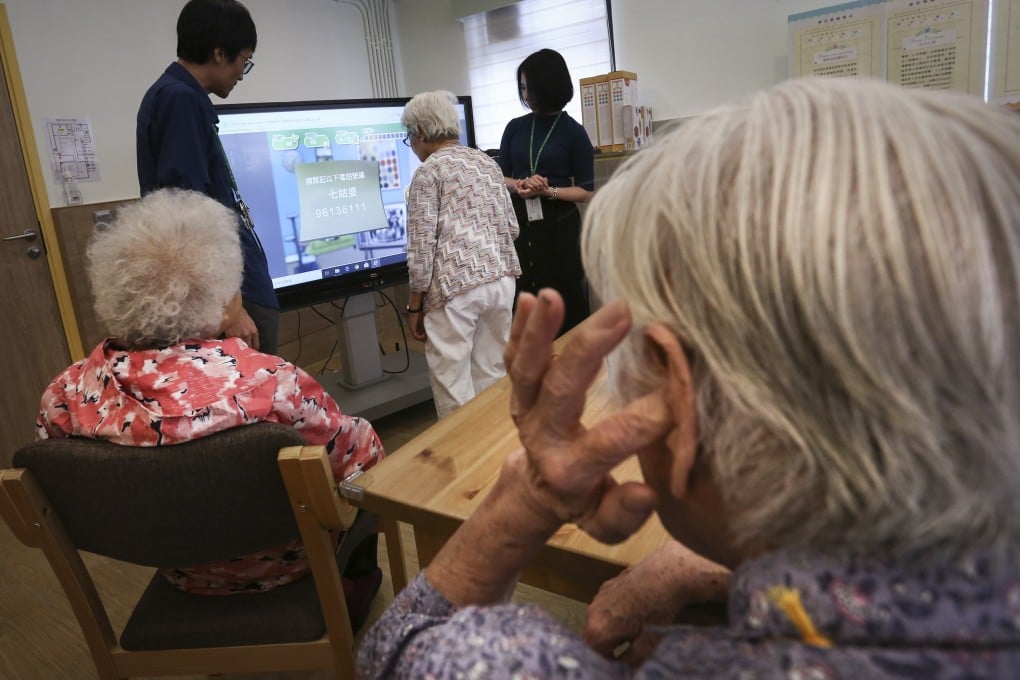Brain training games for the elderly aim to slow cognitive decline and increase social engagement
- A set of games designed by the Hong Kong Society for the Aged sees senior players performing everyday tasks such as buying food and matching socks
- The brain-training industry is forecast to exceed US$8 billion by 2021, though there is little evidence games boost people’s abilities outside their context

Three times a week 86-year-old Chai Suet-chun goes grocery shopping, folds laundry and orders dim sum. It might sound like a busy schedule for someone her age, but Chai doesn’t need to expend much physical energy to complete the tasks. It’s her brain, not her body, that does the work.
“I like playing the grocery shopping game very much,” Chai says. “The games are useful in training my memory and hand-eye coordination, and they are entertaining – I feel happier than before.”
The games mirror everyday tasks. Players buy fruit at the supermarket, memorise phone numbers and match pairs of socks. “The games are designed with cultural relevance to the elderly in Hong Kong,” says the programme’s occupational therapist, Wilson Wong Wai-sang. “The content and design are what they are familiar with.”
They also help to increase social engagement, which is especially important as we age.